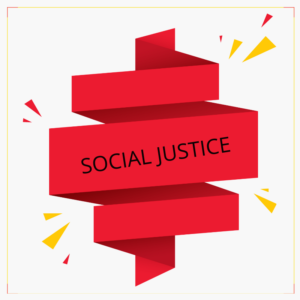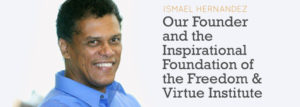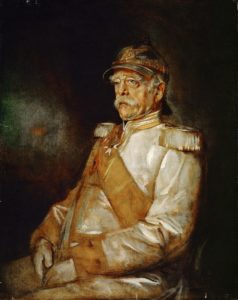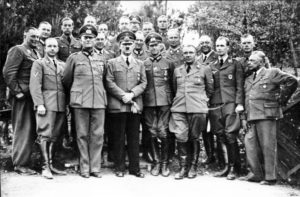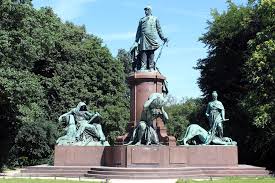Incentives matter more than dispositions. The structure of a system often has built-in incentives that entice people to, over time, move in one direction or the other. If you incentivize work, you will get working people. If you incentivize sloth, you, eventually, assist in removing from a population the value of work. That thrust might be imperceptible in the beginning, but it accounts for much shifts in ethos and in performance.
Poverty is often merely the end result of cultural incentives sowed in the garment of society long before its effects hit your pocket. As they are hidden, they can be easily missed or denied. What motivates more people is the reality they see, what is readily apparent, what lays naked in the here and now. The intangible, the hidden, what lays yonder is not coated with urgency, but it counts.

During the civil rights era, blacks clearly demonstrated a reservoir of strength in character that have been forged through generations of struggle. Regrettably, in the aftermath of such great movement we saw an erosion in that character expedited by the policies and assumptions of the welfare state. On January 8, 1964, President Lyndon Johnson called on Congress to declare an “unconditional war on poverty in America.” Poverty was perceived as an affliction, a disease that needed to be extirpated, cured with the medicine of government intervention. A caring society was supposed to support a collective Federal effort and descend over the face of poor communities to defeat the virus of want. Soon after, Johnson expanded his vision, calling for a “Great Society” that “demands an end to poverty and racial injustice.” What followed was a comprehensive attempt to fill every hole of need. Over that guaranteed ground, the poor could safely aspire for more, reach for second-order change that was to lift them up permanently. By the time he left office, his administration had established more than two dozen new anti-poverty programs, and provided an answer to poverty that still remains as the backbone of our collective vision for poverty alleviation.
The Great Society era did not end poverty, it merely institutionalized it. Black liberals of the era came to embrace what began during President Roosevelt’s New Deal interventionism as the model to address economic ills in the black community and that model became standard on how to address poverty in America. The New Deal might have massively benefitted those Southern whites placed in charge of administering New Deal programs, but it did little to uplift blacks or poor Southern whites. White southerners were key to the passage of New Deal legislation and that is why Roosevelt placed them in control of New Deal offices, knowing well that they were going to discriminate against blacks. The New Deal was a revolution in the expectations and the promises of change, not on actual change. Narratives, however, do work well politically and they also create incentives toward the development of a particular ethos.
 During the New Deal era, blacks received some relief but at a great cultural cost. Distinguished voices of the era warned of the devastating effects of relief for the black community, but these voices remained unheeded. Professor Newell Eason of Shaw University, for example, predicted that relief would pauperize the race by inculcating counter-values. Black leaders such as Francis E. Rivers and William Lloyd Imes expressed similar concerns. John P. Davis, of the Joint Committee on National Recovery, said at the time that “The total effect of the government’s social experiments [was to] plan for permanent poverty.”
During the New Deal era, blacks received some relief but at a great cultural cost. Distinguished voices of the era warned of the devastating effects of relief for the black community, but these voices remained unheeded. Professor Newell Eason of Shaw University, for example, predicted that relief would pauperize the race by inculcating counter-values. Black leaders such as Francis E. Rivers and William Lloyd Imes expressed similar concerns. John P. Davis, of the Joint Committee on National Recovery, said at the time that “The total effect of the government’s social experiments [was to] plan for permanent poverty.”
Blacks received powdered milk and free cheese and others cashed on the exchange. For example, the Social Security program at that time excluded agricultural and domestic employees from unemployment compensation fat a time when two-thirds of blacks worked precisely in those occupations. Efforts to raise labor standards (and thus improve skills that will improve prospects of better employment) through the National Recovery Administration did not apply to agricultural and domestic employment; again, precisely the sectors where almost all blacks worked. Roosevelt made a Faustian bargain in exchange of symbolic gestures of racial justice coming mostly from his wife, Eleonor. As on paper the policies of the New Deal included all those in poverty and hardship, blacks came to only blame Southern whites for the discrimination and were happy to at least participate in some benefits through a time of great hardship as the Great Depression was. The only alternative to survive, they discerned, was to support Roosevelt’s New Deal.[See Alan Keyes, Masters of the Dream: The Strength and Betrayal of Black America(NY: Morrow, 1995, pp. 107-131)]
The Great Society project was an expansion of the New Deal Model with the rhetoric of empowerment but the political expectation of permanence. It assumed a defeatist vision where the twins of economic underdevelopment and racism were too powerful to conquer without the generosity of governmental paternalist intervention. A psychology of defeat ensued, the individual person, unique and unrepeatable, surrendered to the power of group-think, and government came to be seen as the Great Valhalla, the answer to all our longings. Masses were lead to believe their success depended more on government programs than on themselves because forces outside of their control—real ones and imagined others—were too powerful to defeat.
The welfare state did not create problems that did not already exist. Every community and every culture has negative traits, defeatist factors in its midst. The welfare state simply began to change the cultural recipe by introducing a new set of incentives that did not help the positive countervailing tendencies and institutions that, within an embattled community, tried their best to push against the lower inclinations of the human heart. After all, our lives are a continual struggle between inclination and obligation and it does not take much to take the easier route of the satisfaction of desire. Moreover, blacks were and are a hard working people. Many of them received relief because they truly needed it, especially during tough conditions. Yet, there is not telling of what embedded incentives do underneath good intentions.
The welfare state and its incentives entered communities in the struggle but not on the side of moral empowerment. Before that era, the church was the city on a hill of the community. There was a moral attachment to assistance. Pastors will help people but there was a bargain. “I want to see you on Sunday”, “You better treat that woman right!”, “Stay in the straight and narrow.” A moral expectation was attached to the gift and that incentive was destroyed and substituted with a government identity card, a request for income evidence, and a check as a reward for our poverty. The availability of financial support through bureaucracies instead of through communities indeed gave us an illusion of success, as resources were made available, tangible, readily apparent ones. But it also eliminated the need to accommodate the moralizing influence of churches and other self-help groups. Secularizing forces with financial resources won the day and lured the black poor—and other poor people—away from the practical dependence upon churches and the network of internal institutions of support organically embedded in the fabric of the culture. [See Marvin Olasky, The Tragedy of American Compassion(Washington, D.D.: Regnery, 1992, Chapters 9, 10, 11)]
A more insidious result is not related to economics but to the attitude towards society at large and toward what it meant to be black in America. Scholarly analysis has suffered from this a priori narrative about society. The God-fearing, hardworking and moral majority in black America faded from the scholarly interest in favor of the “oppressed” minority in search in the midst of a society that was changing only in appearance but not in substance. To easily identify all the wrongs of the system”, academics focused on black deficiencies and weaknesses, in black defeats and lack. Blacks were seen as a group uniquely wronged and incapable of transcending the forces of evil without massive governmental intervention. From that initial scholarly interest emerged an even more radical approach, a dialectical materialist approach: we need to eviscerate the very idea of America, irredeemable as it is. Blacks must reject the very concept of America and their authenticity arises from becoming the token of recognition that will eventually burn down the house and build another. America has to go! Every black person and the black community at large became first scenery in the drama of white oppression and government protagonism and later actors in the inevitable forces of history, an epiphenomenon of class struggle.
I say, enough! We need to abandon that road well-traveled and the false narrative that has infected our history of late. We don’t need social engineering and “activism” to strengthen the very government-centered solutions that ignored our greatness. We don’t need a foreign ideology forged in olfd Europe that objectivizes blacks as essential faithful drops in the great wave of revolution. We need to renew the moral foundations of the community by re-learning and appreciating again what was already there. It is not material needs or wars about “access” to this or the other government program what will bring about healing. Given the early history and character of the black community, that collectivist mindset can be embraced only if we are willing to abandon everything that early experience has taught if we abandon the values and the ethos that sustained a great people and can revitalize their communities once again.
To build on that foundation, we need to take seriously the values and institutions now treated as an afterthought.
Read More


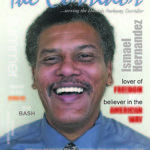 We have descended into a nominalist society where universals are said to lack real meaning and words are
We have descended into a nominalist society where universals are said to lack real meaning and words are
 During the New Deal era, blacks received some relief but at a great cultural cost. Distinguished voices of the era warned of the devastating effects of relief for the black community, but these voices remained unheeded. Professor Newell Eason of Shaw University, for example, predicted that relief would pauperize the race by inculcating counter-values. Black leaders such as Francis E. Rivers and William Lloyd Imes expressed similar concerns. John P. Davis, of the Joint Committee on National Recovery, said at the time that “The total effect of the government’s social experiments [was to] plan for permanent poverty.”
During the New Deal era, blacks received some relief but at a great cultural cost. Distinguished voices of the era warned of the devastating effects of relief for the black community, but these voices remained unheeded. Professor Newell Eason of Shaw University, for example, predicted that relief would pauperize the race by inculcating counter-values. Black leaders such as Francis E. Rivers and William Lloyd Imes expressed similar concerns. John P. Davis, of the Joint Committee on National Recovery, said at the time that “The total effect of the government’s social experiments [was to] plan for permanent poverty.” Carmen
Carmen 
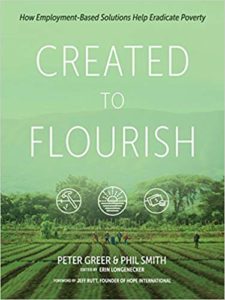
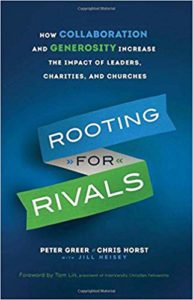
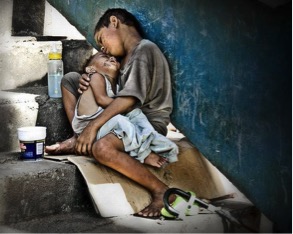 Unfortunately, there are those who benefit from grouping people as if they were herd. The detrimental effect goes further when there are webs in our self-esteem, as we might be tempted to use the cover of the label for the momentary illusion of
Unfortunately, there are those who benefit from grouping people as if they were herd. The detrimental effect goes further when there are webs in our self-esteem, as we might be tempted to use the cover of the label for the momentary illusion of 